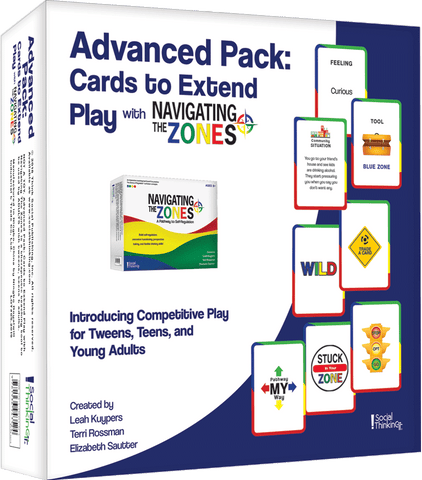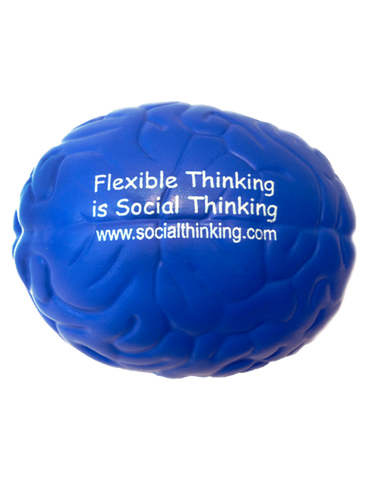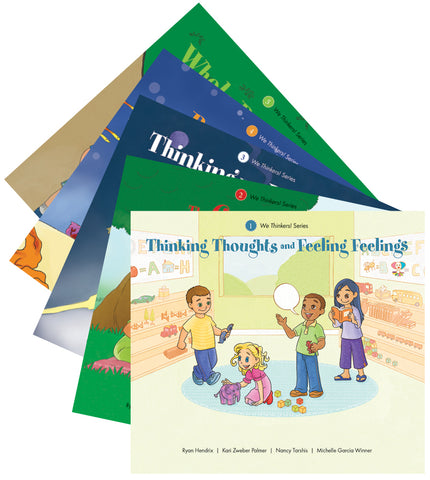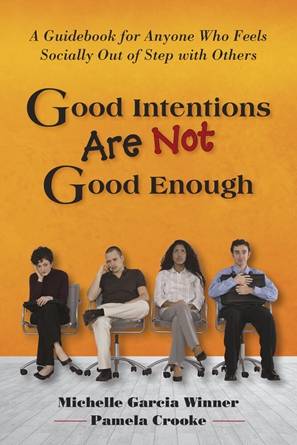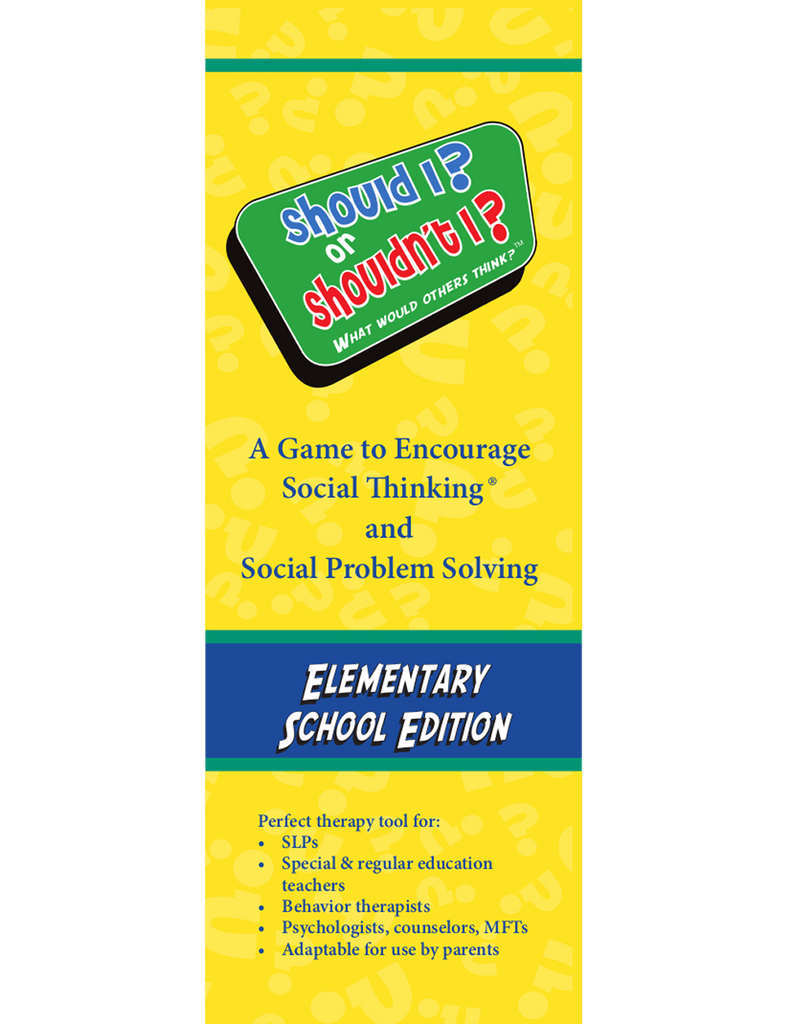
Should I? or Shouldn't I? What Would Others Think? Elementary Edition
The Should I or Shouldn’t I? What Would Others Think?™ Middle & High School Edition game for ages 8-11 makes thinking and talking about behaviour fun, and allows players to explore their own thoughts, perspectives, and behaviour choices within a safe and consequences-free environment. Game play offers abundant opportunities to practice Social Thinking concepts, perspective taking, and problem solving skills, and discuss how our individual behaviour choices affect those around us.
Object of the Game
Players are given a behaviour in a particular context and must rate it on a scale based on if the behaviour is appropriate (or “expected”) and how it makes others feel. Players then compare how their ratings match or don’t match those of the other players. The object of the game is to rate each behaviour similarly to the ratings given by the other players in order to score points and win.
About the Game
One of the key aspects of being a good social thinker is being able to consider the thoughts and feelings of others, an ability referred to as perspective taking (PT). Perspective taking is one of the more complex and challenging to teach of the core components that make up Michelle Garcia Winner’s ILAUGH Model. That’s because PT is not one skill, but a combination of skills that involve thinking about one’s own thoughts and feelings, the thoughts and feelings of others, our own and others’ behaviours, the context of the situation, and using self-regulation to monitor and possibly adjust one’s behaviours. (Read more about the Four Steps of Perspective Taking).
The Should I or Shouldn’t I? game is designed to give children a fun and motivating way to improve their social sense, and discuss age-relevant issues in a non-judgemental setting. The game fosters important discussions about social situations that elementary-aged students may encounter at home, at school, and while they are out and about in the community.
While the Elementary Edition game can be a tremendous help to individuals with social learning challenges, it also encourages greater self-awareness of social expectations and related social skills in any child.
Contents
- Game Instructions
- 100 Prompt cards to practice perspective taking
- 50 Challenge cards that help generalize learning
- 6 sets of Voting Cards (numbers 1-5 in each set)
- 6 copies of the Should I or Shouldn’t I? Behaviour Scale
- Teaching Guide
- Ages and Players
- Game questions, events, and scenarios are geared toward individuals ages 8-11
- 1 to 6 players
- An adult facilitator (parent, educator, therapist, or other engaged adult) who guides the game and is also one of the players
Therapeutic Uses
The Should I or Shouldn’t I? game is best suited for higher functioning individuals with at least emerging perspective taking abilities. It requires players to use perspective taking on two levels. First, they must think about the situation posed on the Prompt card and then think about their own response and how it will be perceived by others. Second, players will also compare their responses to those of the other players to learn if their own social thinking and related response aligns with what others in the group agree would be an expected response.
The game can be played across various settings: within a clinical setting as a therapeutic tool, in a regular education classroom to discuss different perspectives, within social learning groups to practice skills, and at home with parents and siblings. When using the game as a teaching tool it is recommended that the facilitator have an understanding of, at minimum, social learning concepts such as theory of mind, perspective taking, pragmatics, central coherence, and behaviour management strategies.
To gain maximum benefit from the game, the facilitator should have a working knowledge of the Social Thinking framework, the levels of the social mind as described in the Social Thinking-Social Communication Profile, and basic Social Thinking Vocabulary terms.
The Should I or Shouldn’t I? Behaviour Scale
A basic component of the game is the Should I or Shouldn’t I? Behaviour Scale, a tool that further extends to players a common language to think about social behaviours and how they are perceived by others. The behaviour scale included in this Elementary Edition has a five point format and was inspired by the work of Kari Dunn Buron and Mitzi Curtis and their book, The Incredible 5 Point Scale (2003).5 Behaviours that are against the rules
Authors: Dominique Baudry
